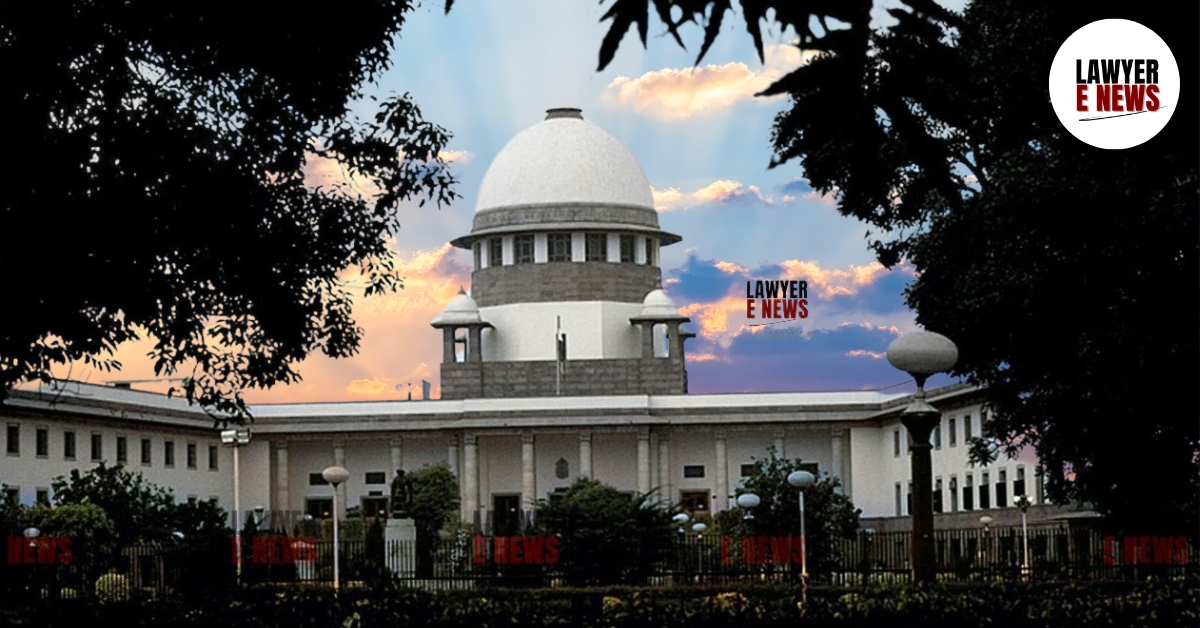-
by Admin
16 February 2026 1:47 PM



“You Can’t Detain Just Because There Are FIRs” —Supreme Court of India delivered a powerful rebuke to the misuse of preventive detention powers, holding that the detention of the petitioner’s husband, despite his release on bail in all pending cases, was an illegal encroachment on personal liberty. The Court, while allowing the appeal, set aside the detention order passed under the Kerala Anti-Social Activities (Prevention) Act, 2007, famously known as the Kerala Goonda Act, terming the act of the State as “an inappropriate circumvention of ordinary criminal law procedures.”
Husband Detained as "Goonda" Without Any Bail Violation Alleged: A Background
The case traces back to an order dated 20th June 2024, when the District Magistrate, Palakkad, detained Rajesh, husband of the appellant Dhanya M, under Section 3(1) of the Kerala Anti-Social Activities (Prevention) Act. The detaining authority claimed that Rajesh was a “notorious goonda” running a registered lending firm, Rithika Finance, and was a “threat to the society at large”.
The detention was supported by four criminal cases involving alleged violations of:
The Kerala Money Lenders Act, 1958
The Kerala Prohibition of Charging Exorbitant Interest Act, 2012
Sections of the Indian Penal Code
Provisions of the SC/ST (Prevention of Atrocities) Act
However, Rajesh was already on bail in all four cases and was allegedly compliant with bail conditions. Yet, no application had ever been filed by the State to cancel his bail.
The High Court of Kerala, in a judgment dated 4th September 2024, upheld the detention, stating it would not reappreciate facts under Article 226 jurisdiction. Aggrieved, the appellant approached the Supreme Court.
Preventive Detention Cannot Be Invoked as a Backdoor to Jail a Bail-Free Accused
The Supreme Court framed the central legal question as:
“Whether the preventive detention of the detenu is in accordance with law?”
Justice Sanjay Karol, writing for the Bench, emphasized: “Preventive detention is a draconian measure... It deprives a person of his liberty without trial and conviction. Therefore, the prescribed safeguards must be strictly observed.”
Citing landmark judgments such as Rekha v. State of Tamil Nadu and Mortuza Hussain Choudhary v. State of Nagaland, the Court reiterated:
“Preventive detention is an exception to Article 21 and must be applied only in rare and exceptional cases.”
"This Is Not Public Disorder, It Is a Law and Order Issue": Supreme Court Underscores Legal Misapplication
The Court took serious note of the fact that the alleged offences — even if assumed true — did not amount to a disturbance of "public order", a mandatory threshold under Section 2(j) of the Act.
“There is a crucial distinction between public order and law and order. The former affects the community; the latter, only specific individuals. The detention order fails to show how the acts disturbed public order,” the Court observed, echoing its rulings in SK. Nazneen v. State of Telangana and Nenavath Bujji v. State of Telangana.
The Bench clarified that even multiple FIRs cannot justify preventive detention unless the conduct seriously impacts the community at large.
"State Should Seek Bail Cancellation, Not Use Preventive Detention as a Shortcut": Court Blasts Abuse of Statute
What drew the sharpest criticism was the State's decision to detain a person who was already on bail, without moving for bail cancellation.
“No application has been filed alleging any bail condition violation. Preventive detention is not a substitute for remedies available under ordinary criminal law,” the Court held firmly.
Relying on Ameena Begum v. State of Telangana, the judgment reiterated: “The law of preventive detention should not be used merely to clip the wings of an accused. It is not intended to keep someone in jail just because bail has been granted.”
Detention Set Aside, Liberty Restored
In conclusion, the Court set aside:
The detention order dated 20th June 2024, and
The Kerala High Court’s judgment dated 4th September 2024.
It allowed the appeal, declaring that the preventive detention was unjustified and disproportionate.
“The circumstances cited may be grounds to seek cancellation of bail, but not to invoke preventive detention. Extraordinary power must be exercised with extraordinary care,” the Court concluded.
Date of Decision: 6th June 2025
